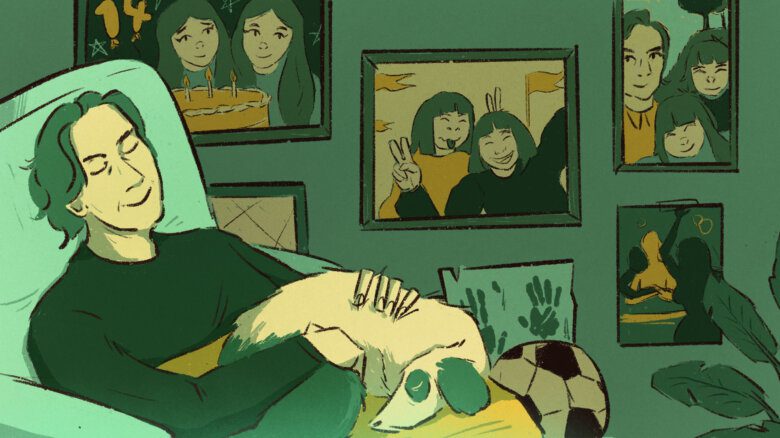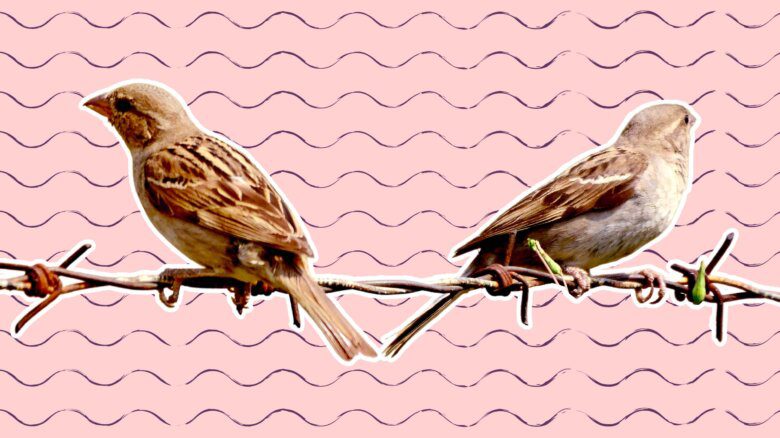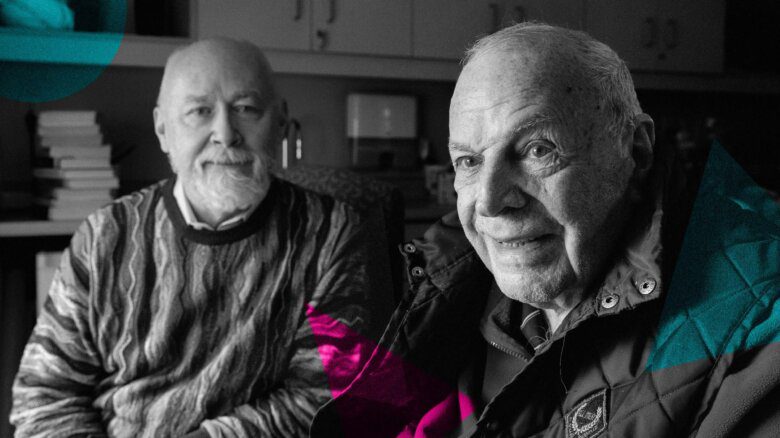“Ask Kai: Advice for the Apocalypse” is a column by Kai Cheng Thom to help you survive and thrive in a challenging world. Have a question? Email askkai@xtramagazine.com.
Dear Kai,
Is it ever the right choice to “cancel” a member of your own community? I’m asking because over the past few years, I’ve done a lot of reading and learning about transformative justice and the importance of non-disposability. I really believe that second chances are important and that even people who do harm should have the opportunity to take accountability and get rehabilitated and be reintegrated into the community. But what do you do when someone has caused harm and is refusing to take accountability, even when given multiple chances? Right now, I’m dealing with a situation like that.
There’s an acquaintance of mine who is a cis straight man (he has recently started to use the language of “gender-questioning” and “fluid” to describe himself, but is still using he/him pronouns). Let’s call him “James.” So James has been dating and hooking up with a lot of women and trans people in our community, which would be fine in itself, but he’s also been lying to them: telling people that he wants to get serious and then abruptly ghosting. Telling them that he’s only seeing one or two other people when he’s actually been seeing many more (which I believe is a form of non-consensual behaviour since it means people don’t have the information they need before going into an intimate situation). And when he’s been confronted about this, he tells people that they’re being too sensitive or acting crazy (which is a form of gaslighting, which is also abuse).
Some people who have been hurt by James want to “cancel” him; that is, call him out online and out him as an abuser to his family and workplace. I don’t want to punish or dispose of anyone, but I also think that James needs to take accountability for what he’s done. And I want him to change his behaviour. I also kind of suspect that he is only using the language of gender fluidity to try and deflect accusations of misogyny and harm. What do you think? Is this a time when cancelling someone is the right thing to do?
Torn in Toronto
Dear TT,
The bane of an easy, straightforward moral existence is the fact that living with other human beings is a bottomless quagmire from which there is no way of getting out completely clean. We are bound to be hurt, even harmed, by our fellow humans, and then we have to decide what to do in response. Is harm ever the right response to harm? Well, there is a saying that goes something like “an eye for an eye means that, eventually, nobody has any body parts.” Then again, there is also a saying that posits that only when the sheep make up their minds will the wolves leave the flock.
I think that in some ways, you are asking me how we can abide living in a village where people are inconsiderate, dishonest and hurtful. I think you are asking me if there is a way we can force those people to stop without dirtying our hands, if hurtful behaviour ever justifies a potentially hurtful response. These are important and difficult questions. I believe that the mark of a true adult is the ability to engage deeply and honestly with questions like these.
I do not know the answers to your questions. I only know what I believe, and I have been wrong many times before. I am fairly certain, however, that no one knows definitively how to answer life’s important and difficult questions—good answers lead only to more questions and bad answers lead only to sticky ends. It can be very tempting, when life poses its difficult questions, to seek resolution in the words of a famous writer, activist, guru or sage. How much easier it would be if we could only cede our moral responsibility to another person, some great and wise shining star. Unfortunately, all the shining stars I have even known (and I have known quite a few) have all also been wrong many times, sometimes very badly, and with serious consequences, whether they lead their followers from a monastery, from a megaphone at a protest or from Instagram. I believe the greatest danger arises when we give up our moral responsibility and our moral agency in the name of following a particular leader, doctrine or ideology.
Unfortunately, I’m afraid that the only way through this situation is to answer it yourself—drawing from the wisdom of others, yes, but also from the wisdom within yourself. Most of all, you will need to be open to the possibility that you, too, will be wrong in your choices—perhaps both right and wrong in different ways at the same time. You will need to stay in living dialogue with your values, your ethics and your integrity, and you will need to give yourself and others the same kind of grace that you wish to see in the world.
The “too long, didn’t read” summary of the above is: “It’s very complicated, I don’t know, you’ll have to figure it out for yourself.” However, my job is to give advice in this column, and so I am happy to tell you what I believe and what I would do more specifically in response to the situation you’ve described as well—with the caveat that I do not know the specific details, only the basic outline, and that there may be other perspectives out there that are equally or more valid than mine.
“People who have survived abuse should not have to keep secrets in order to protect the people who have abused them.”
I believe everyone deserves access to community, basic needs such as food/water/shelter/healthcare, vocation (work) and physical safety. When we take actions against individuals that may threaten this access, including online “cancelling,” those are very serious actions indeed. Public humiliation can also have serious psychological impacts that we cannot always foresee, which is why I try to avoid it where possible.
However, I also believe that public disclosure is sometimes the only way to stop someone from abusing a position of power. I believe that people who have survived abuse should not have to keep secrets in order to protect the people who have abused them. And I believe that every specific situation must be considered within its own specific context.
Based on your description of the situation in your letter, TT, here is what I would and would not do as a bystander: I would not engage in denouncing James online, and I would not support or encourage others who have not been directly impacted by his behaviour in doing so. I would not support or encourage any kind of interference with his place of work, and I would absolutely discourage contacting his family without his consent. I would also push back against any impulse to cast doubt on James’s gender identity/gender-questioning, as in my view, this is transphobic/transmisogynist behaviour regardless of the reasons for it (we should not cast doubt on someone’s gender identity just because we do not like them).
What you have described in terms of James’s dating/hookup patterns is, in my view, rude, hurtful and dishonest behaviour. It fits into misogynist and patriarchal patterns. However, it does not actually rise to the level of physical or psychological violence; it is not a misuse of power to coerce or intimidate others.
Assuming James was dating and hooking up with other adults whom he did not have a professional duty of care for, he was not abusing a position of institutional power over them either. What he did was wrong and caddish, but also part of the normative (if often quite hurtful) conflicts that so frequently arise in the fields of sexuality and dating.
Sometimes people ghost us. Sometimes they abandon us. Sometimes people raise our hopes and then dash them abruptly. Sometimes people misrepresent or misunderstand the seriousness of their intentions, and they might even belittle or dismiss our emotional pain. Doing these things is not okay. Yet by themselves, they are not necessarily grounds for invading someone’s privacy or interfering with their employment.
I believe that people who have been hurt by dating and hookup partners have the right to tell others about it, whether or not the hurtful behaviour constitutes abuse. I also believe that we all have a responsibility to respect the line between telling the story of our righteous anger, and active harassment. Here, I align with Black feminist writer adrienne maree brown’s writing in Emergent Strategy: “You have the right to tell your story.… You do not have the right to traumatize abusive people, to attack them publicly, or to sabotage anyone else’s health. The behaviours of abuse are also survival-based, learned behaviours rooted in some pain. If you can look through the lens of compassion, you will find hurt and trauma there. If you are the abused party, healing that hurt is not your responsibility, and exacerbating that pain is not your justified right.”
So when is it justifiable to “cancel” an individual? I believe it may be necessary to publicly “out” someone’s harmful behaviours when that individual is in a position of institutional power and there is no other way to prevent them from abusing it. I believe it may be necessary to warn our communities, either privately or publicly, when a person’s patterns of behaviour indicate that they might present an active danger of assault or harassment to others. However, I also believe that such actions should always be centred on harm reduction—reducing or preventing further harm, rather than on inflicting harm as a form of “payback” or “teaching them a lesson.” And wherever it is possible to seek a resolution that is reparative and healing, I encourage us to do so (which does not mean that we have to continue relationships with people who are bad for us).
So here we are, TT, in the midst of the muck of the ethical quagmire of human relational life. Another word for quagmire is bog: a tract of wet, murky land full of water and mud, where it is easy to get lost and there are few—if any—true shining stars. We can never enter such a place and expect to leave clean. Yet within a bog, we can also find life, if only we care to look. There are answers in the murkiest places. Let’s go searching for them together.
Kai Cheng Thom is no longer a registered or practicing mental health professional. The opinions expressed in this column are not intended or implied to be a substitute for professional medical advice, diagnosis or treatment. All content in this column, including, but not limited to, all text, graphics, videos and images, is for general information purposes only. This column, its author, Xtra (including its parent and affiliated companies, as well as their directors, officers, employees, successors and assigns) and any guest authors are not responsible for the accuracy of the information contained in this column or the outcome of following any information provided directly or indirectly from it.


 Why you can trust Xtra
Why you can trust Xtra


